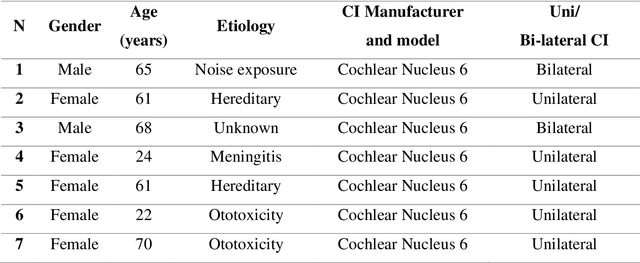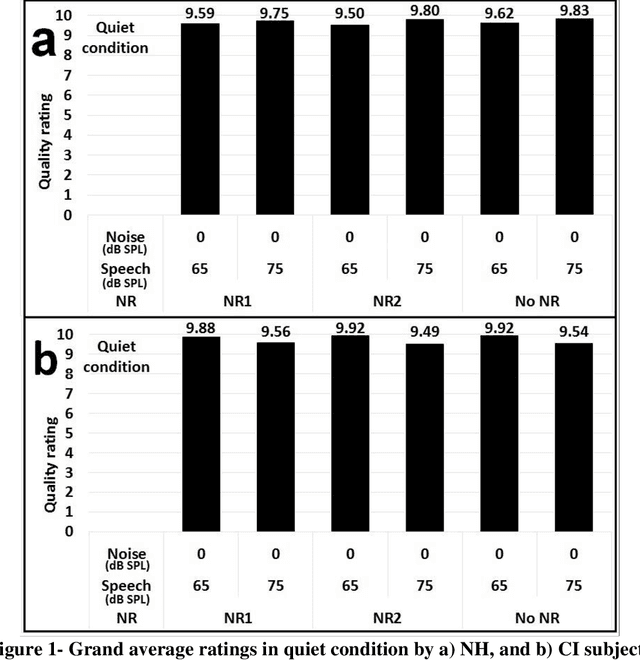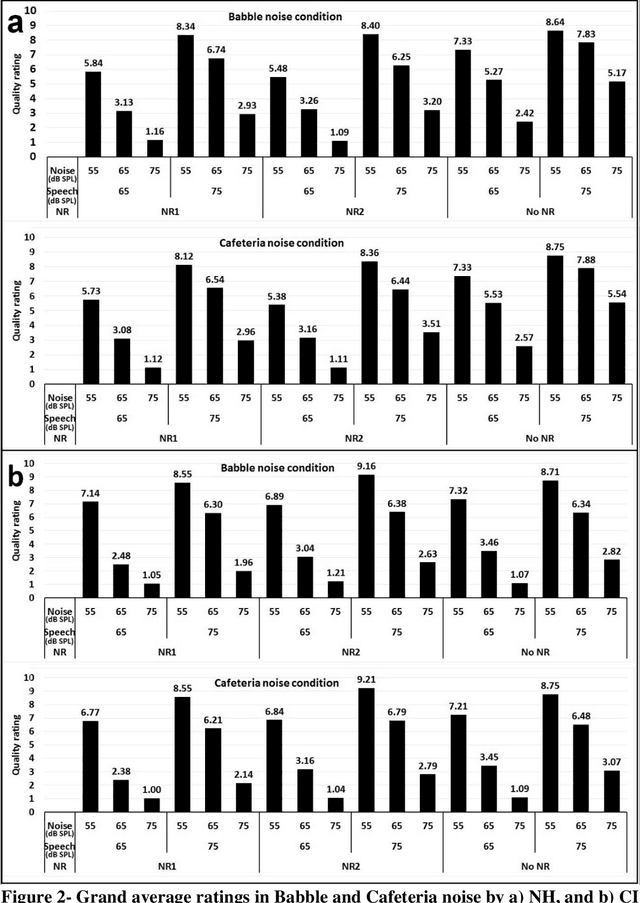The effect of speech and noise levels on the quality perceived by cochlear implant and normal hearing listeners
Paper and Code
Mar 03, 2021



Electrical hearing by cochlear implants (CIs) may be fundamentally different from acoustic hearing by normal-hearing (NH) listeners, presumably showing unequal speech quality perception in various noise environments. Noise reduction (NR) algorithms used in CI reduce the noise in favor of signal-to-noise ratio (SNR), regardless of plausible accompanying distortions that may degrade the speech quality perception. To gain better understanding of CI speech quality perception, the present work aimed investigating speech quality perception in a diverse noise conditions, including factors of speech/noise levels, type of noise, and distortions caused by NR models. Fifteen NH and seven CI subjects participated in this study. Speech sentences were set to two different levels (65 and 75 dB SPL). Two types of noise (Cafeteria and Babble) at three levels (55, 65, and 75 dB SPL) were used. Sentences were processed using two NR algorithms to investigate the perceptual sensitivity of CI and NH listeners to the distortion. All sentences processed with the combinations of these sets were presented to CI and NH listeners, and they were asked to rate the sound quality of speech as they perceived. The effect of each factor on the perceived speech quality was investigated based on the group averaged quality rated by CI and NH listeners. Consistent with previous studies, CI listeners were not as sensitive as NH to the distortion made by NR algorithms. Statistical analysis showed that the speech level has significant effect on quality perception. At the same SNR, the quality of 65 dB speech was rated higher than that of 75 dB for CI users, but vice versa for NH listeners. Therefore, the present study showed that the perceived speech quality patterns were different between CI and NH listeners in terms of their sensitivity to distortion and speech level in complex listening environment.
 Add to Chrome
Add to Chrome Add to Firefox
Add to Firefox Add to Edge
Add to Edge